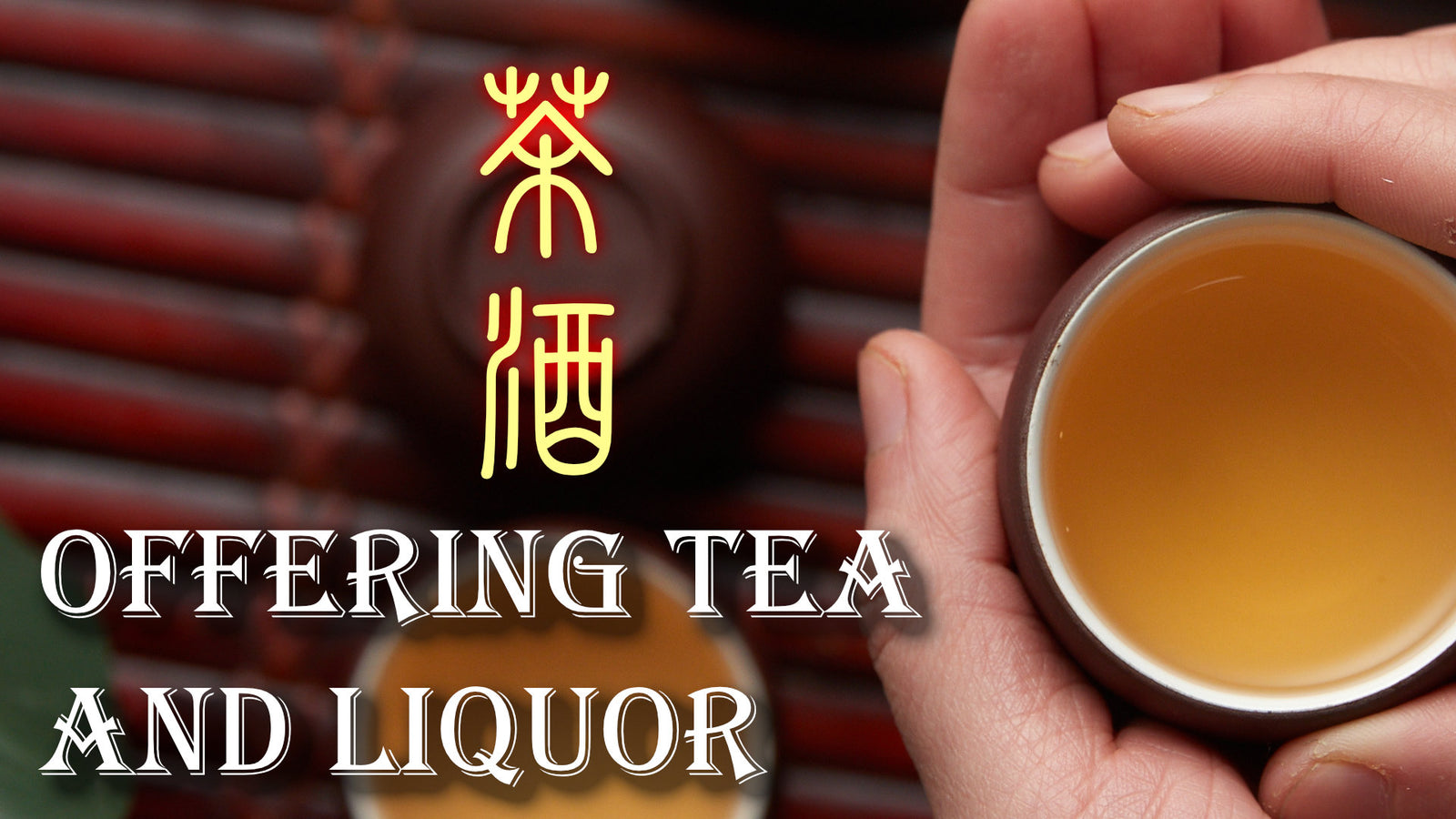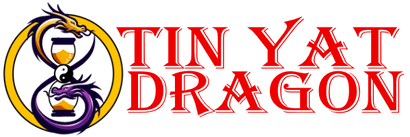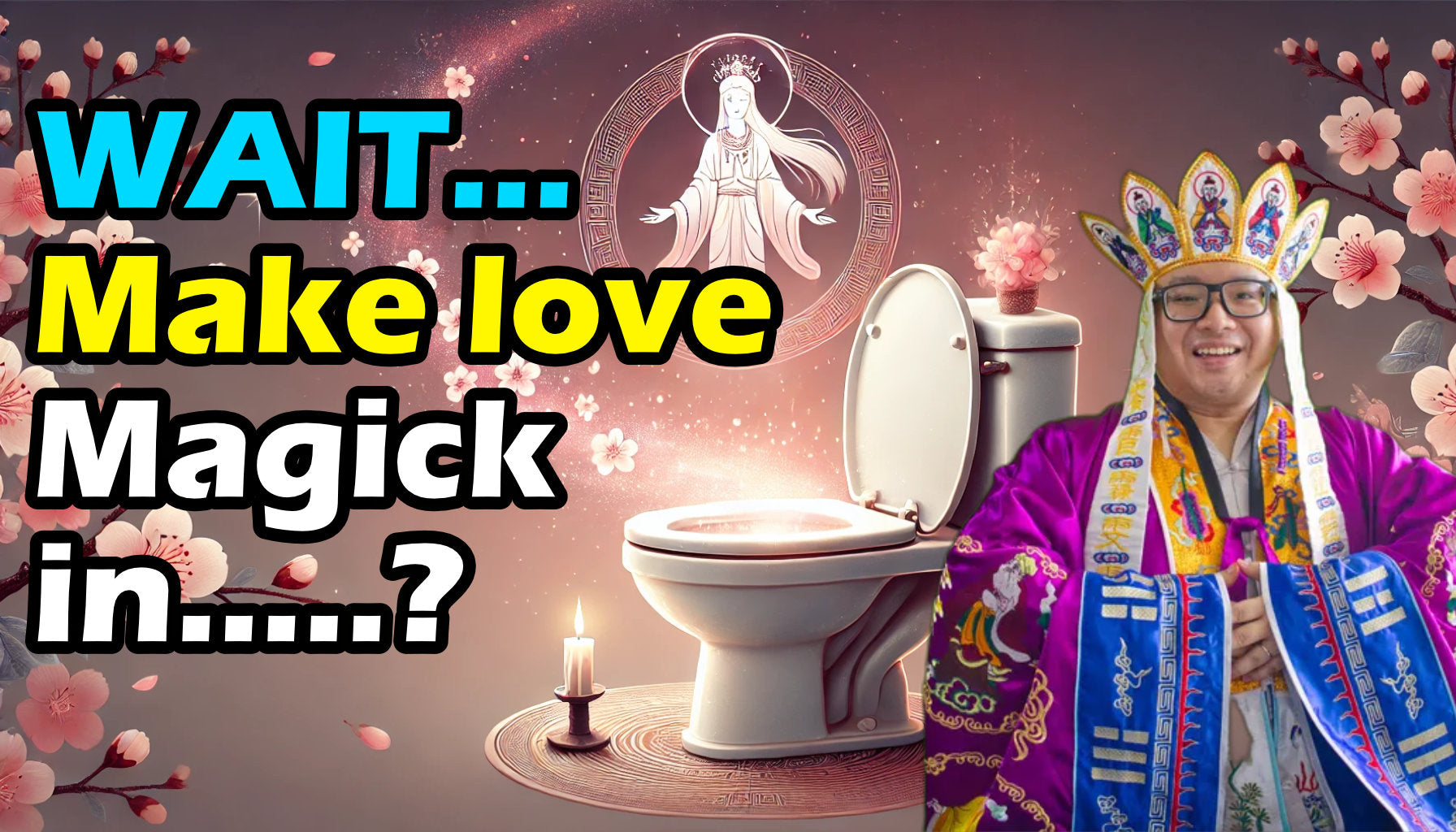
Offering tea and liquor at the Taoist altar is a revered practice that holds profound significance. While these offerings are part of the broader category of food offerings, their importance warrants a dedicated exploration. In this article, we will unravel the symbolism, rituals, and nuances associated with offering tea and liquor at the Taoist altar.
Understanding the Symbolism
Tea Offerings
Tea is symbolic of absorption and understanding. When we offer tea, we are essentially asking the deities to listen and comprehend our words and intentions. This is particularly important when we communicate with them through the burning of incense.
The tea offering typically consists of three cups of tea. The type of tea is not as important as the intention behind the offering. You can use any tea leaves or even the contents of tea bags. If the altar is hosted by multiple individuals, such as family members, you can use a small teapot with tea. Each person symbolically pours a small amount into the cups, indicating a collective offering.
Liquor Offerings
Liquor, in contrast, symbolizes invigoration and activation. It is akin to energizing the deities and calling them to action. This is especially significant during ceremonies or when divine intervention is sought.
The Quantity: How Much to Offer?
On regular days, three cups of tea are the standard offering. However, during significant ceremonies where the deities are called upon for specific actions, five cups are offered. It is important to fill the cups at least halfway. Be generous with your offerings, as if presenting them to a revered guest. Additionally, ensure that the cups are cleaned before the next round of offerings.
The Ritual of Pouring: Reciting the Spells
While pouring the tea, specific spells are recited. These spells are essential as they symbolize the act of the deities consuming the tea.
Spell for 3 Cups:
*敬天天清,敬地地靈,敬人人長生,萬事大吉祥,急急如律令*
Giang Tian Tian Chieong, Giang Di Di Nieng,
Giang Yeen Yeen Chiang Cieong,
Waan Su Daai Gi Jiang, Gip Gip Yu Lu Nieng
This spell pays homage to the sky, ground, and human realms, representing the three dimensions. The sky is the source where the altar connects to, which is the Religious Court of the lineage. The ground represents the spiritual dimension of the inner world of the altar, known as D6 or dimension 6. The human realm represents reality where the physical altar is situated. The spell conveys the wish for the court above to rain down, for the altar's spiritual world to connect and respond, and for the blessings to be delivered to the physical realm.
Spell for 5 Cups:
*一敬東方青龍降,二敬南方朱雀飛,*
*三敬西方白虎伏,四敬北方玄武藏,*
*五敬中央三羅靈,急急如律令*
Ya Giang Dung Fong Chieng Nong Gong,
Yi Giang Naam Fong Ju Chia Fi,
Saam Giang Si Fong Baai Fu Fu,
Si Giang Beh Fong Xuan Wu Chong,
Whuo Giang Jung Yiang Saam Noh Nieng,
Gip Gip Yu Lu Nieng
This spell is used to pay homage to the five camps army, which is
invoked during exorcism ceremonies. These five camps are essential components that you can learn more about in the Saam Law Tao Military Book.
The Essence of Offering with Respect
When engaging in these offerings, it is vital to do so with respect, focus, and the right intention. The offerings of tea and liquor are not just physical substances but are symbolic of your communication and relationship with the deities and the higher powers.
As you continue on your spiritual journey, you may learn additional variations and nuances in these rituals. Embrace them with an open mind and let your connection with the Tao and the deities grow stronger with each offering.
For those who are deeply committed to this path, ordination is a step that can further deepen your understanding and connection. Through ordination, you can learn to host a real altar and engage in these offerings in a way that brings positive energy and blessings into your life.
Ordain to learn more, and most importantly, establish the connection with the Tao and celestial court soon. Interested in reading more? Read our My First Taoism Book” to understand more about Taoism!


